Truth be told, I really enjoy playing heavy games.
The heavier the game—the more strategic, rules-dense a game can be—the worse I am at playing, because I am not a very patient person. Still, I love to see how a plan works out over a longer sit, even during games when I play badly.
But something changed for me in 2022. As much as I love playing heavy games, I am finding that I hate teaching these games because there are so many reminders I have to provide during play. Some of this could be the fault of the designers/publishers/production team: for instance, when the iconography isn’t clean, the back of the rulebook doesn’t have any scoring reminders, or player aids were deemed unnecessary.
But most of my issues are a mix of the game’s weight plus the players at the table. Though many of the games I played in 2022 had poor rulebooks, many players also spent their time during my teach only half-listening (“my iPhone screen is so shiny!!”).
And the loser in this process is me.
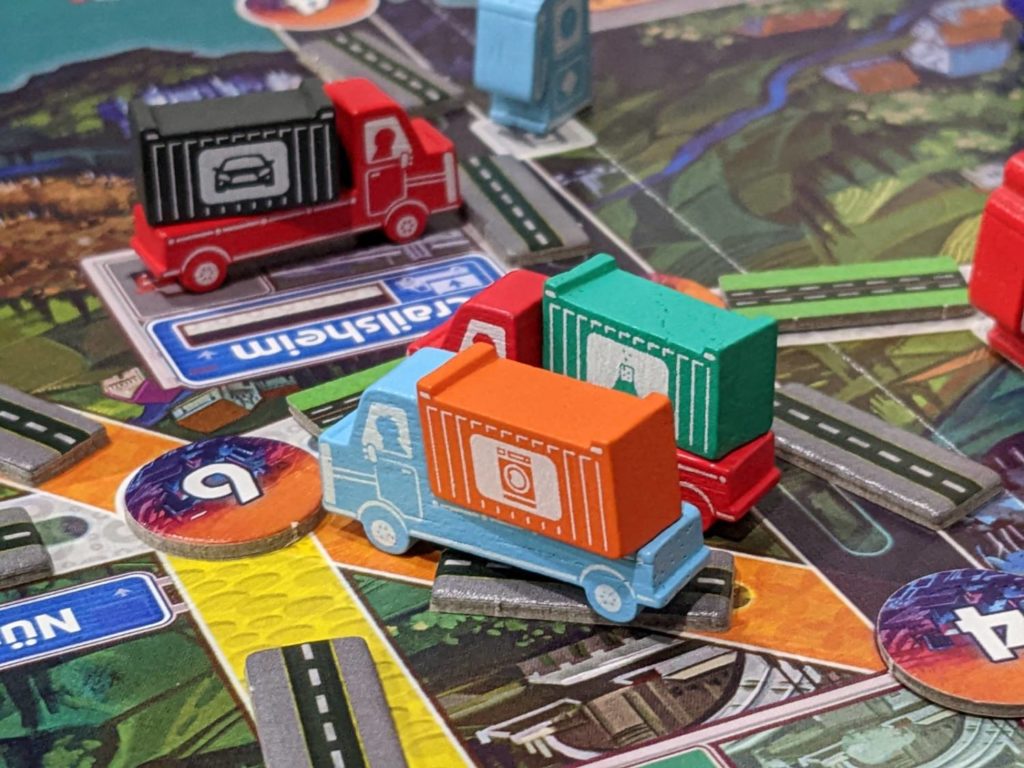
A Recent Example
I was excited to bring the new Alley Cat Games release Autobahn to a recent game night with one of my gaming groups. I knew it would be a three-hour experience, but I wanted to get this group’s opinion before drafting my review. So, once again, I prepared to teach.
When possible, I ask players to watch a rules video in advance. That way players can get a sense of how to play and, if minor questions come up during play, I will always be ready to answer them (or find that section of the rulebook). In this case, Autobahn won’t be released in the US until spring 2023, so no good instruction videos are available yet.
To make matters worse, Autobahn has a below-average rulebook, and more importantly, it has a bunch of inconsistent edge cases. For example, certain actions are done one way, but other similar actions are done differently, and mid-round scoring is a bit messy. Thankfully, I realized that the overall turn-to-turn actions are not complicated, so if questions came up, they would all be tied to edge cases.
I taught the game the way I teach all games: I start by first telling players the win condition. (Yes, I always start with that, and I’m always amazed when watching other people teach games that don’t start by telling people what is most important when it comes to winning. I’m not even a competitive person, I just want people to understand what they are playing for!)
After discussing win conditions—in the case of Autobahn, I stressed that the main goal is to get as many of their employees as possible on the administration board, because that is the only place to score points—I discussed the general concepts of the game. We covered the three-round structure, the various autobahns on the main board, the player board spaces, and the terminology difference between a section and a link.
Finally, we covered how turns work, the various actions, managing your hand, and bonus actions, before coming back to how each round ends and how the game’s final round will end before final scoring takes place.
Then we started the game. There were questions from each player right away—no problem. After all, it’s the first turn, no one knows what they are really doing, and all of us love taking time to joke about the fact that “money is tight in this game.” But questions kept coming. Questions came about every part of the process: when to do bonus actions, how to recall played cards, how to use the Funding action, how to upgrade built roads.
One player would ask, “Tell me again, how do you move your truck?” Then, two turns later, a different player would say, “You may have already mentioned this, but how do you move your truck? Do you have to play a card?”
I could feel my brain starting to melt a little. This happens whenever I play heavier games—the product of not being smart enough to be at the table in the first place—but it really hits me when I’m trying to figure out my own strategy while also answering questions from three other players.
This was the second time someone had asked this question; I wonder when the third player will—
“Justin, question for you about the trucks. How do they move again?”
Someone banged a fake gong, because in our group one of our things is to call out when every player has asked the same question, forcing the teacher to say, again, what the rule is. By this point, the cup runneth over, and I snapped back with the answer to this query before putting my head back down to consider the action I would take on my turn.
Despite the fact that all of us are seasoned gamers, Autobahn created questions on nearly every turn. This helped determine that Autobahn’s design could use some more polish—by the midpoint of any game its systems should be more and more familiar as play goes along, but that wasn’t happening here. Quite a few games I played this year, even the good ones, left a lot of questions unanswered.
Luckily, I was there to answer them all.
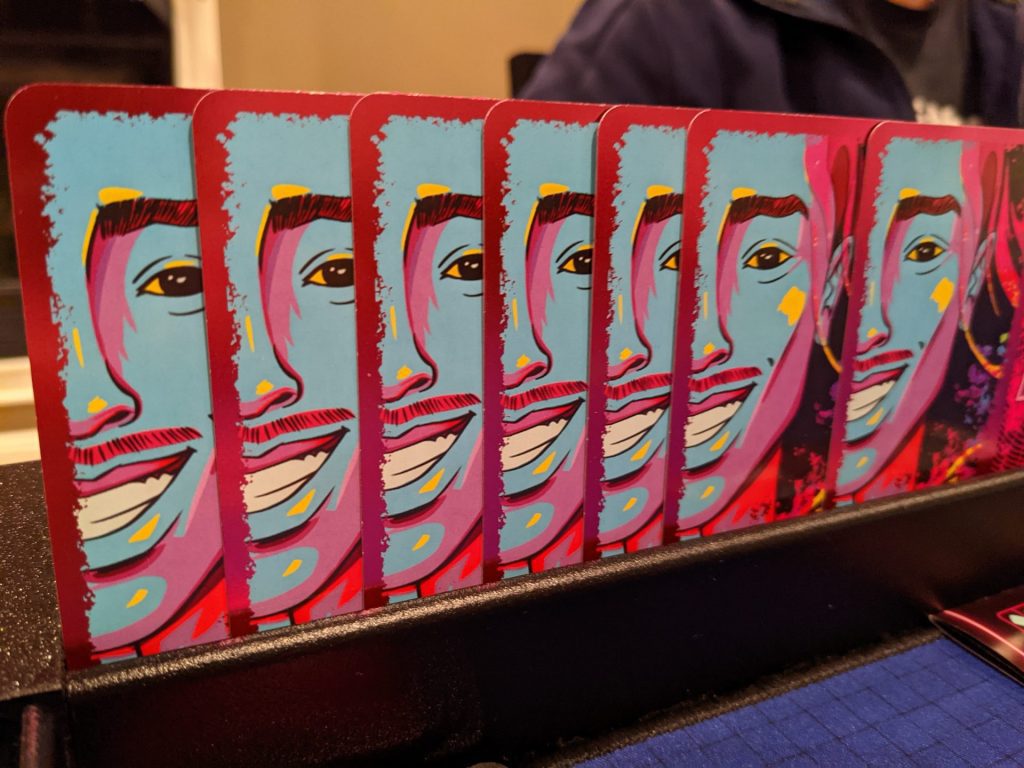
Why Does This Happen?
Modern games have too many rules.
I could come up with a lot of excuses on behalf of any party you would like. I could tell you that designers just assume gamers have figured everything out by now. I could tell you that a higher rules overhead means more interesting decisions. I could even try to convince you that the best games are the hardest ones.
But the honest truth is quite simple: games are becoming too convoluted.
Some players will argue that games have evolved. You could play a classic trick-taking game like Spades, but in the culture of the now, a new baseline has formed around titles like Cat in the Box, Brian Boru, Anansi, Tidal Blades: Banner Festival, or Thrones of Valeria. Those are all variations of a trick-taking game, but trying to teach them even to longtime core gamers sometimes leads to moments of pause.
With heavier games and 30-page rulebooks, one inevitable byproduct is that everyone is saddled with remembering too much stuff. You need to understand what actions are possible on a turn. Forget the ramifications of those actions; just to know the complete buffet of options for a turn is quite a load. (Don’t you just love teaching A Feast for Odin to new players? No?)
You’ll also need to understand what various areas of the game’s board do for players. End-game scoring. Mid-game scoring. Gosh, in some cases, you start games with a score because certain actions cost you points!
Iconography. Passing actions. Bonus actions. Pre-turn reset actions. Income rounds. Hidden roles. Secret end-game scoring objectives.
If you’ve got variable player powers, and maybe (for better or for worse) true asymmetrical powers, you’ve got not only the game’s core rules, but the faction’s rules. Have you ever wanted to play Root with new players, looked at the box and realized that you will need to teach the game to three new players, and just decided, “nah, I’m good”?
It’s a lot. It’s why I have begun to mix in more lighter and medium-weight gaming experiences. I want to be able to both teach the game and enjoy playing without answering a load of questions. These days, if I can show up and play a game where everyone has done their homework and we can experience something new together, count me in. I’ll admit, I’m lucky. I’ve had more of those experiences than not over the course of my gaming career, and I’m going to lean harder into them moving forward.
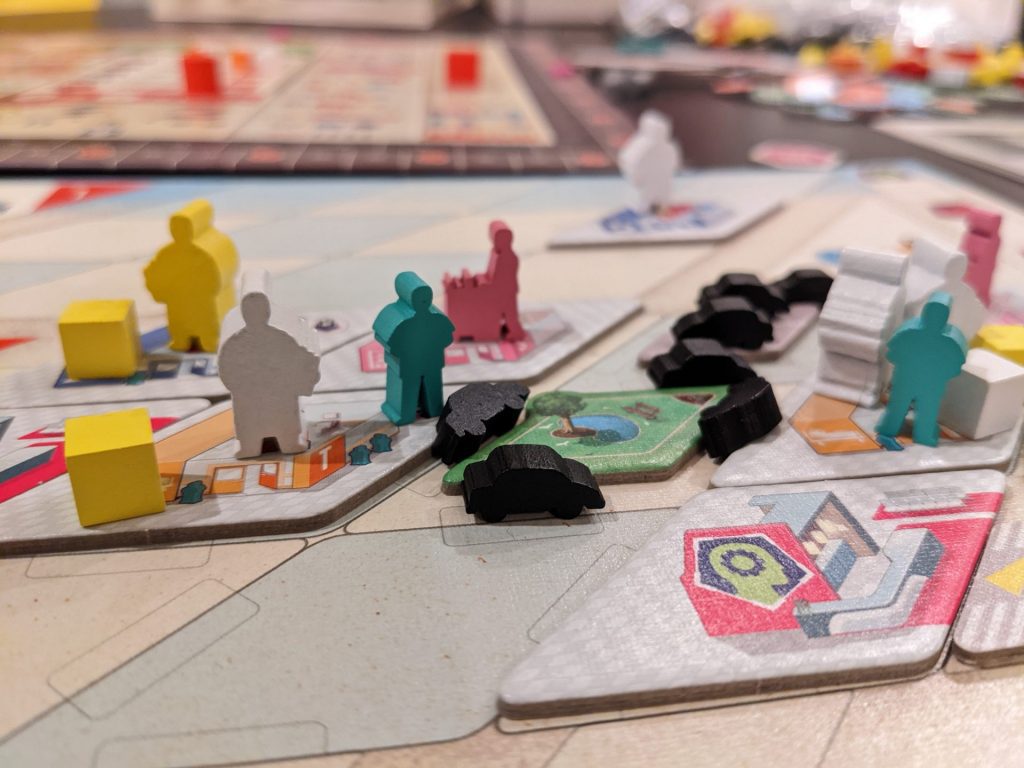
Some Tips on How to Teach a Game Once
No matter what, you’ve got to be ready to answer questions around edge cases, end-game scoring requirements, and other odds and ends during play. That’s fine. But when you find yourself answering the same questions multiple times, you might find these tips below helpful. (Be sure to check out my colleague Mark Iradian’s article about a more detailed approach to how to teach games to new players.)
First and foremost, make everyone watch a rules video. Seriously, just do it. There are now about a dozen professionals that make fantastic, succinct, polished tabletop rules videos and everyone loves going to YouTube. Milk that to your advantage, if a video is available. Some recommendations: Game in a Nutshell (my current favorite; super dry, but absolutely nails the things you need to know to play a medium-to-heavy complexity game), Watch It Played, Gaming Rules!, and Nights Around a Table. On occasion, you’ll be able to visit the publisher’s website to get a quick 10-minute overview of a game and that’s about all you will need to start playing.
Politely ask the table to not interrupt your teach until you ask for questions. That also means at maybe the halfway mark of a 30-minute teach, you should offer to answer any questions that have come up so far. The Autobahn teach was made easier by the fact that interruptions were minimal; interruptions can turn a 30-minute teach into a 45-minute discussion quite easily, and I’d rather be playing than teaching.
When anyone asks a question that you know is addressed on the player aid, don’t answer their question; tell that player to take a look at their player aid first. Some of the aids out there nowadays are really fantastic. Many games, like Cryo, can fully be taught from the player aid, so before you go interrupting your thought process for your turn, take a moment to remind other players that the publishers had them in mind when they asked all of their questions!
While first doing your teach, be sure to point out any areas of the board where some information may be available for players. The board for Clinic: Deluxe Edition is the player aid and it does a great job of laying out the answers to most questions in plain view of all players. Use that to your advantage!
One last tip for teaching a game just once: play a simpler game. For every game that has a high rules overhead, a game like Gimme That! hits the table and you can finish the teach in 60 seconds. Hopefully, you’ll find your sweet spot during this exercise and land in a place that makes everyone happy!


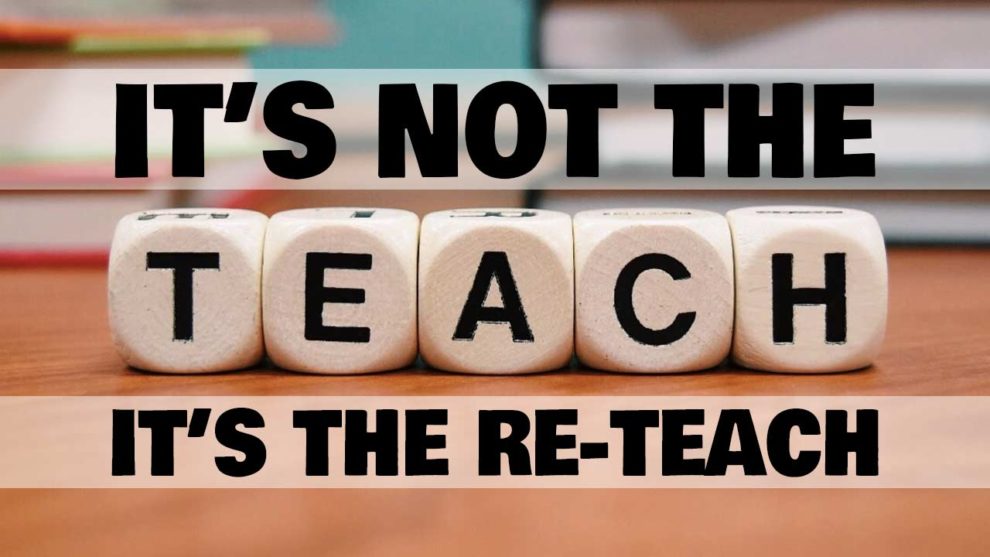
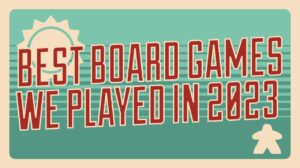







Add Comment